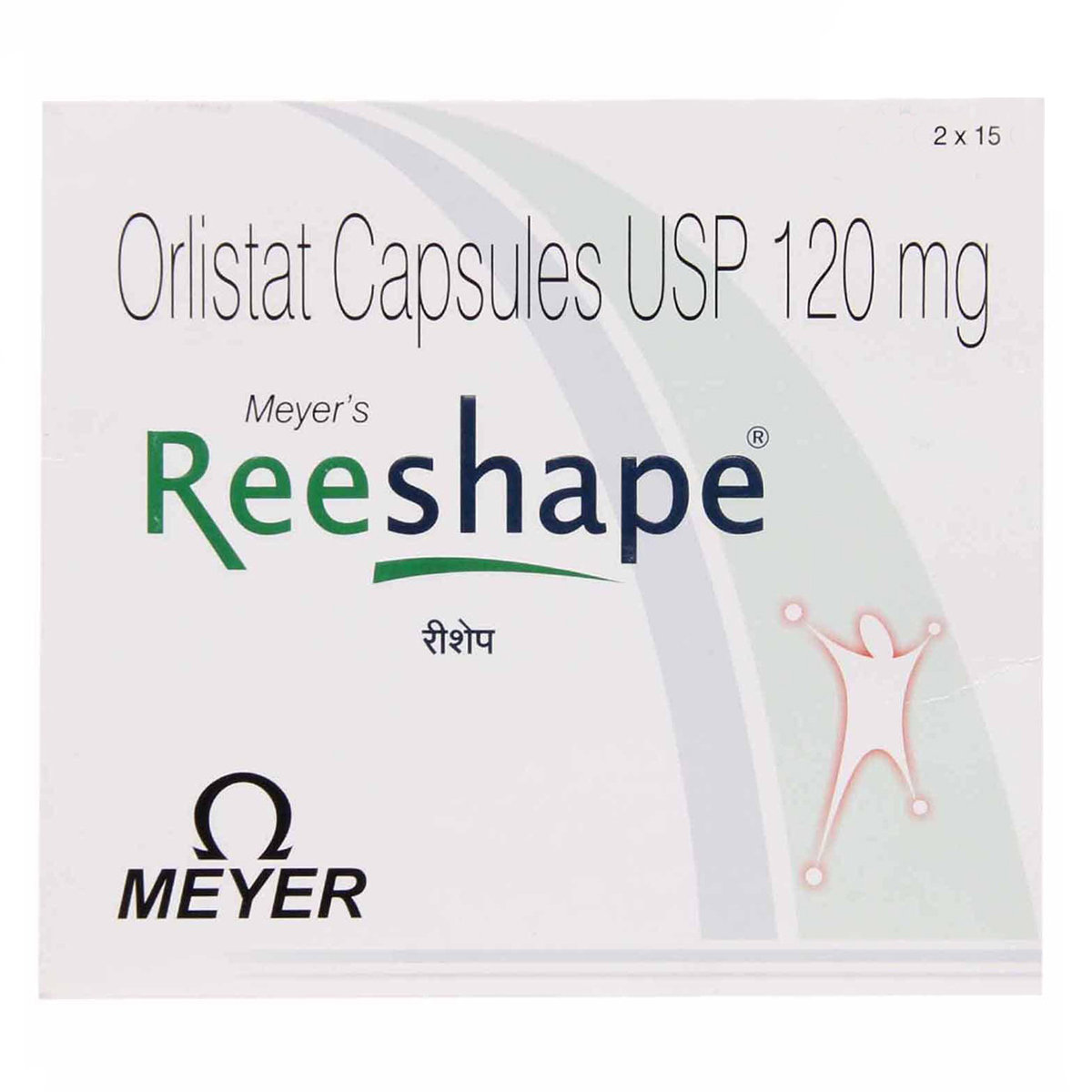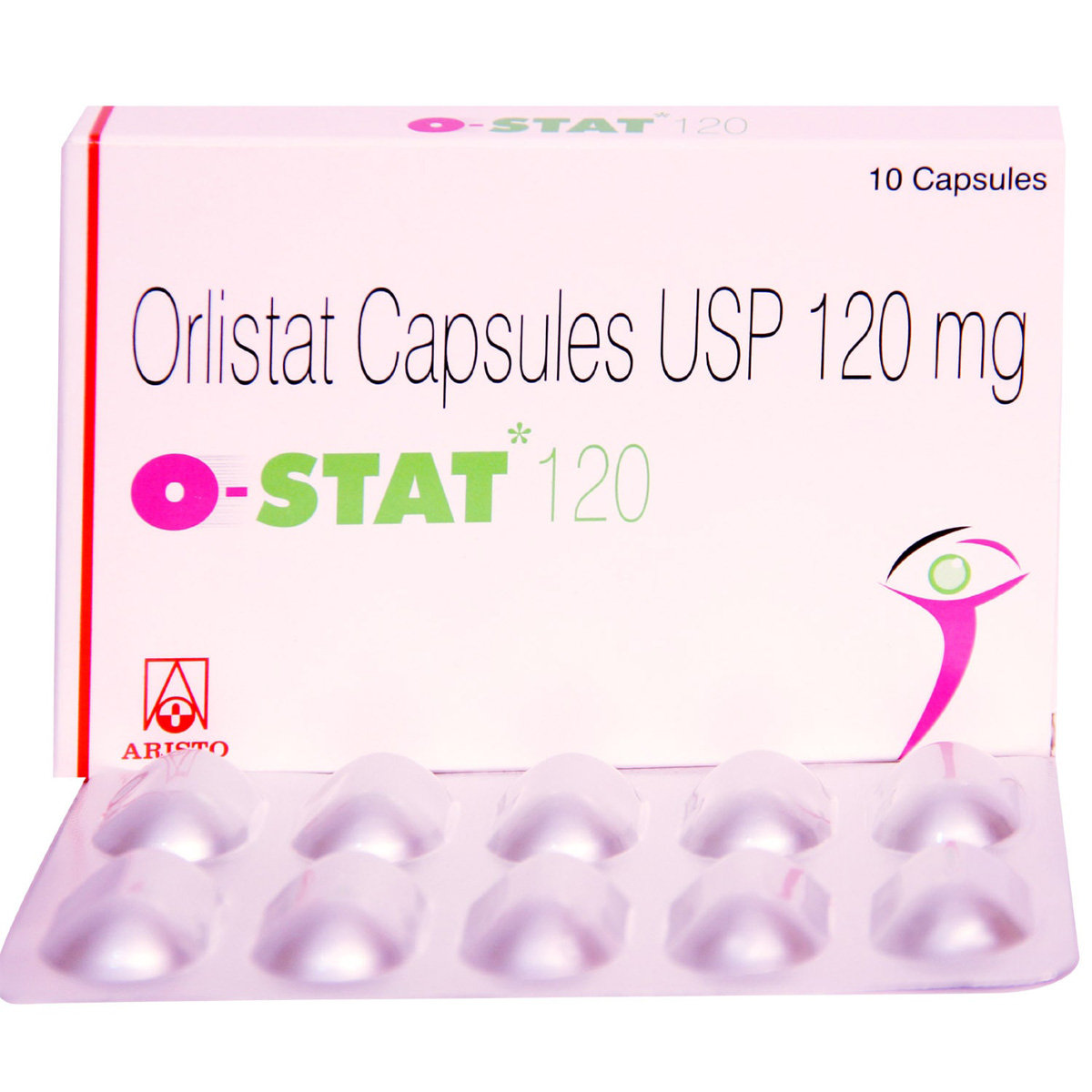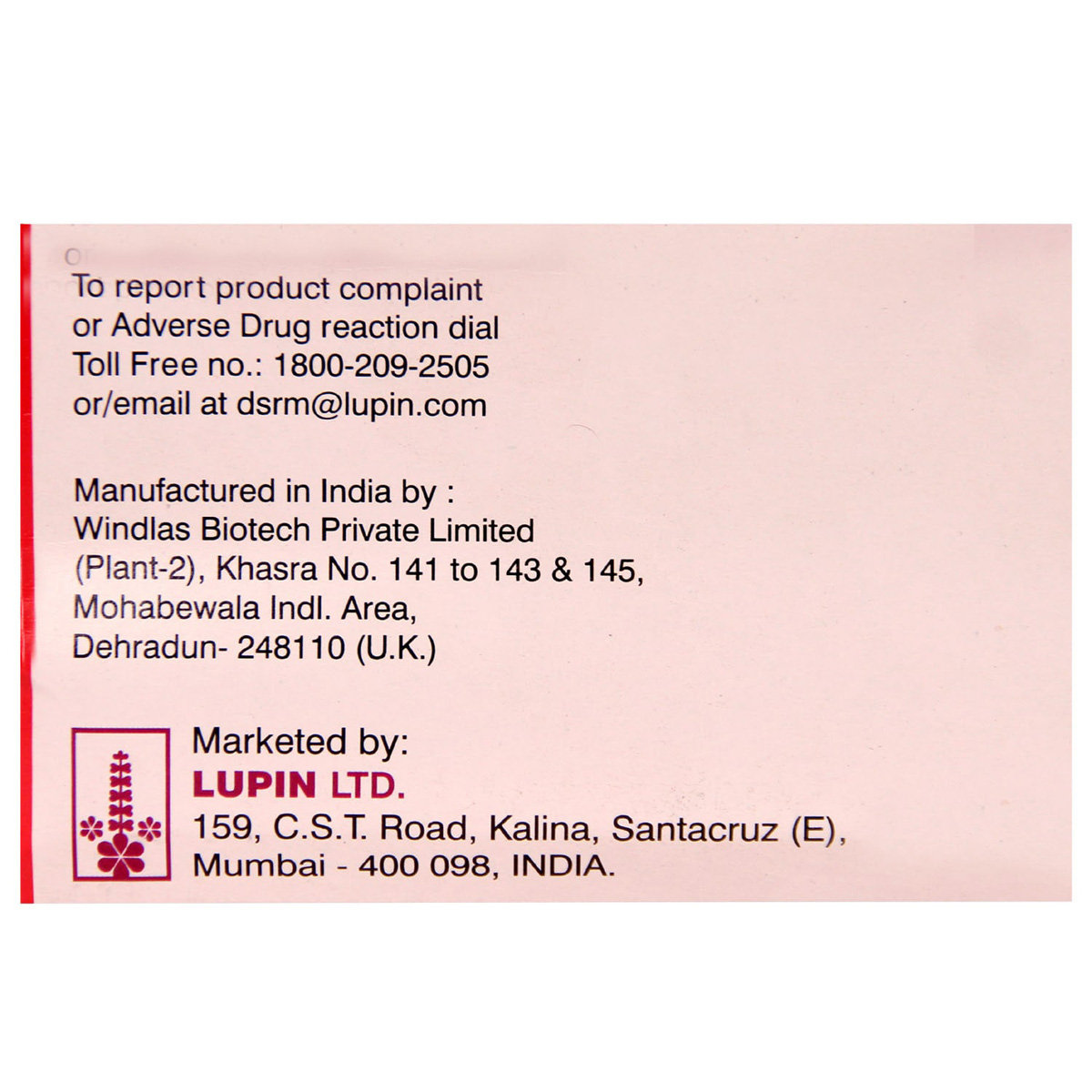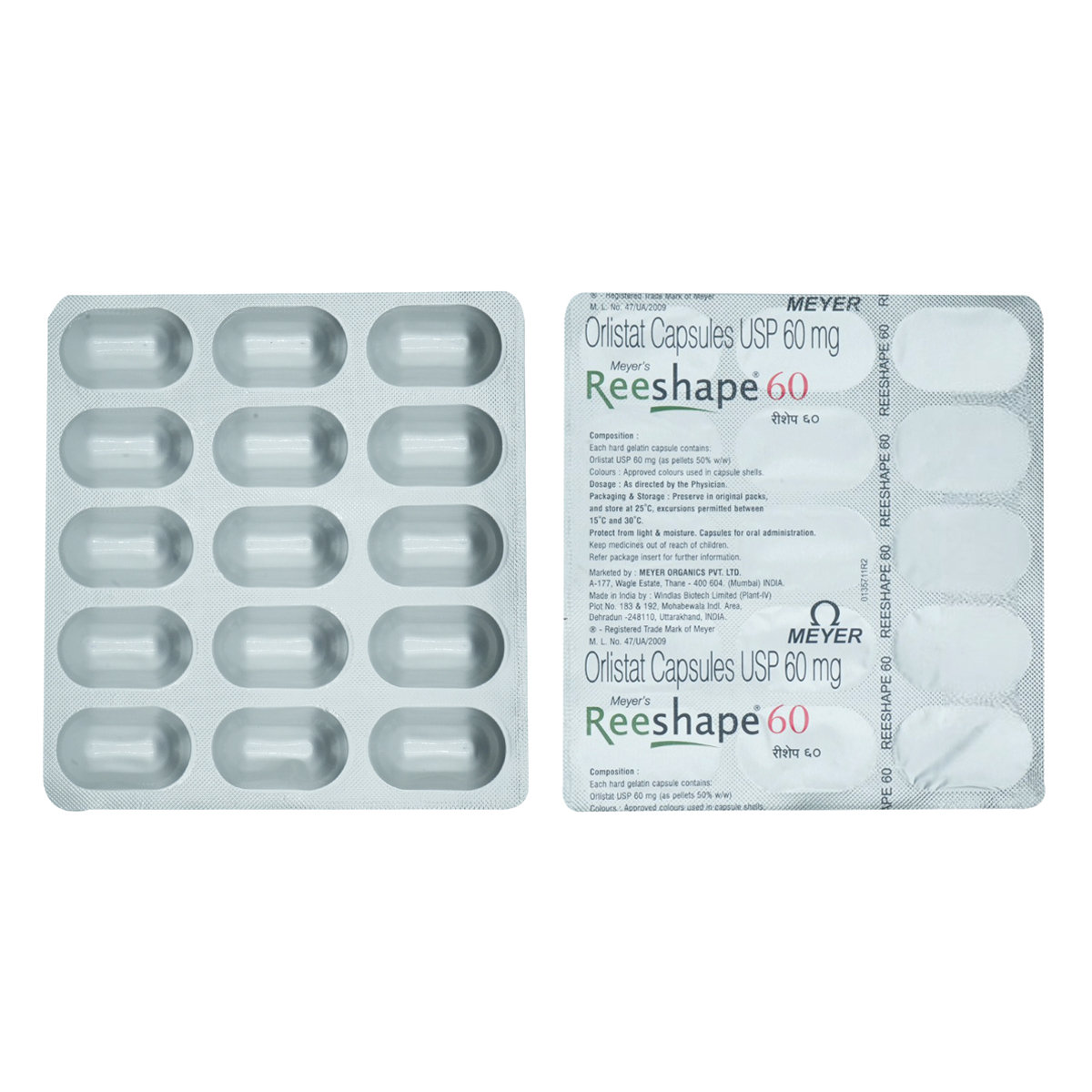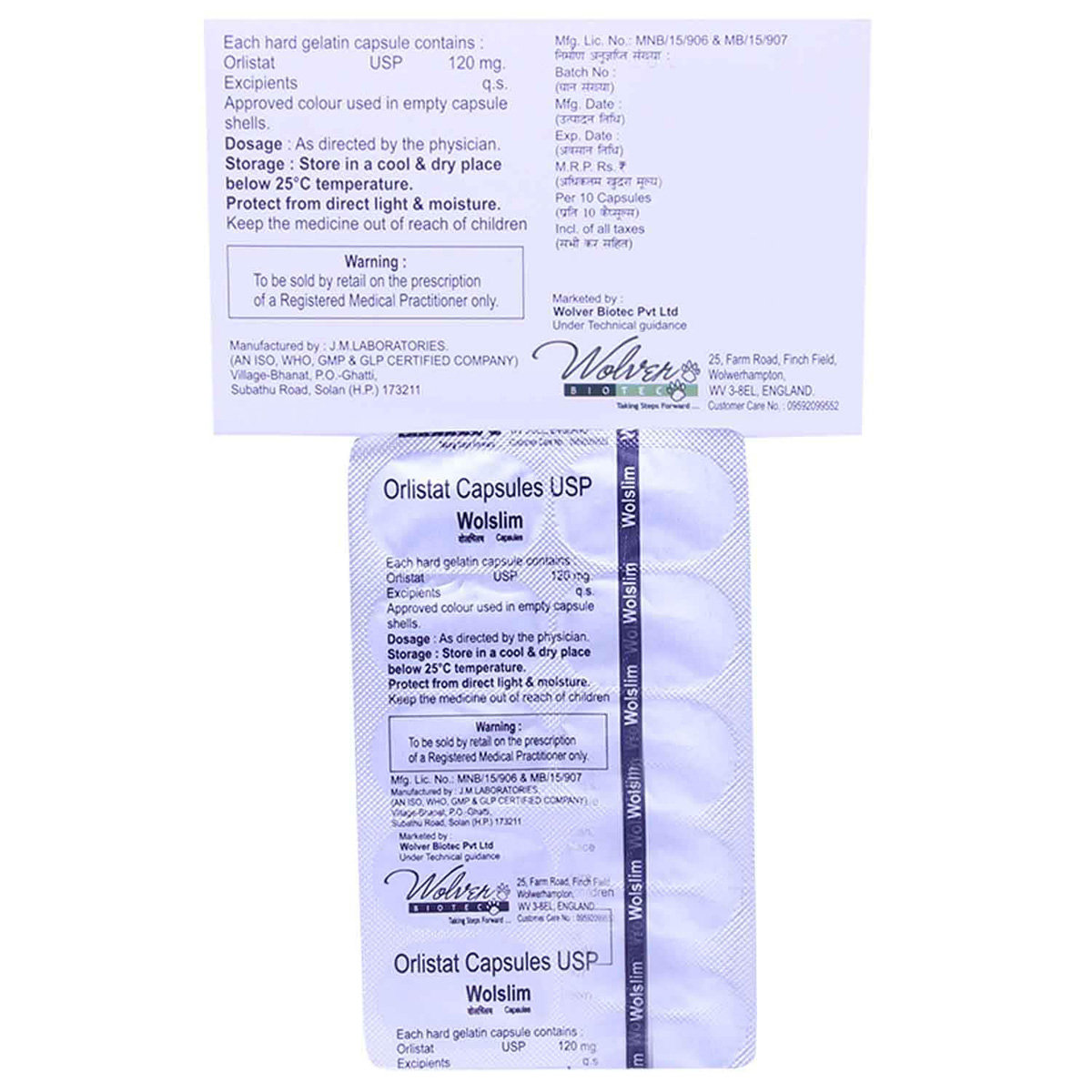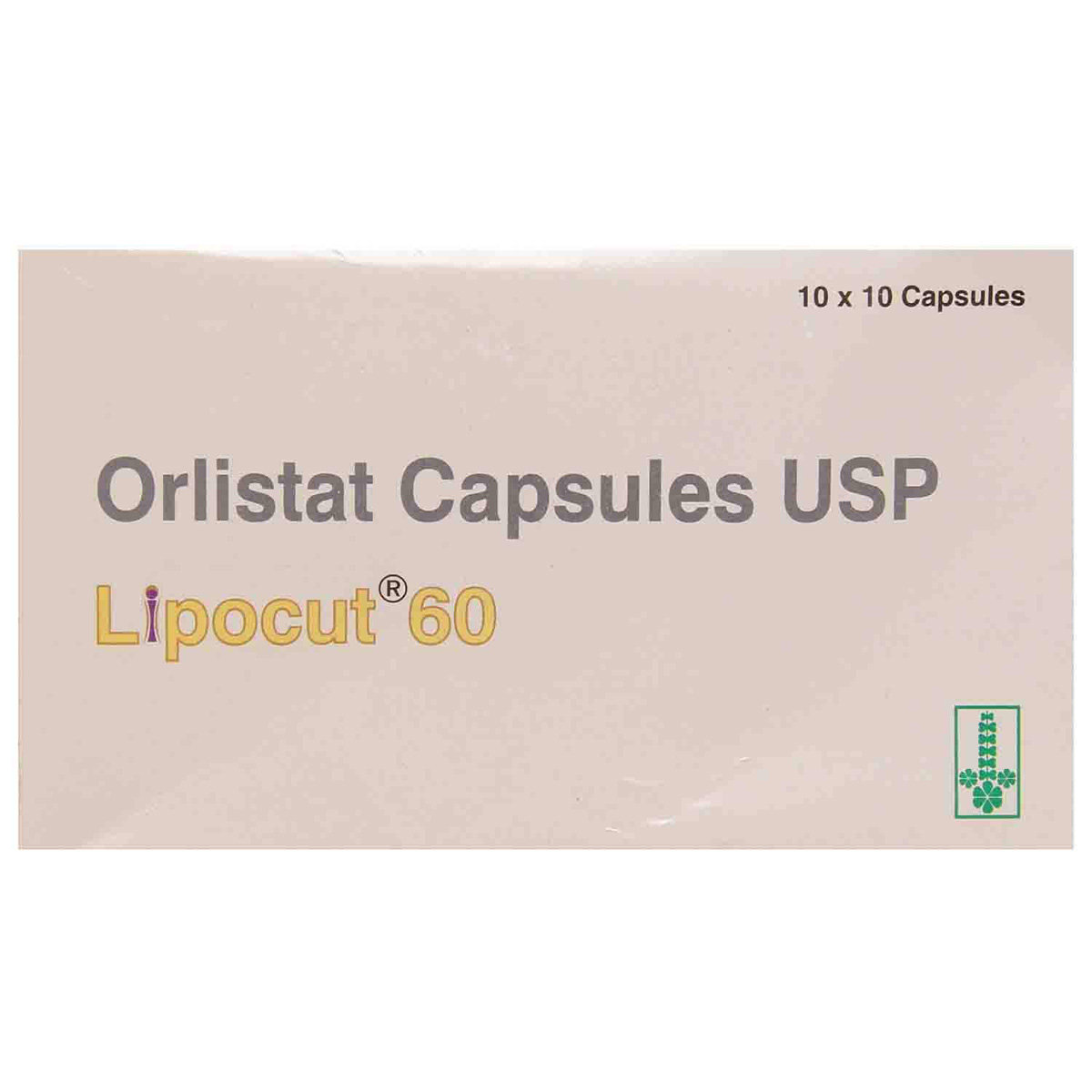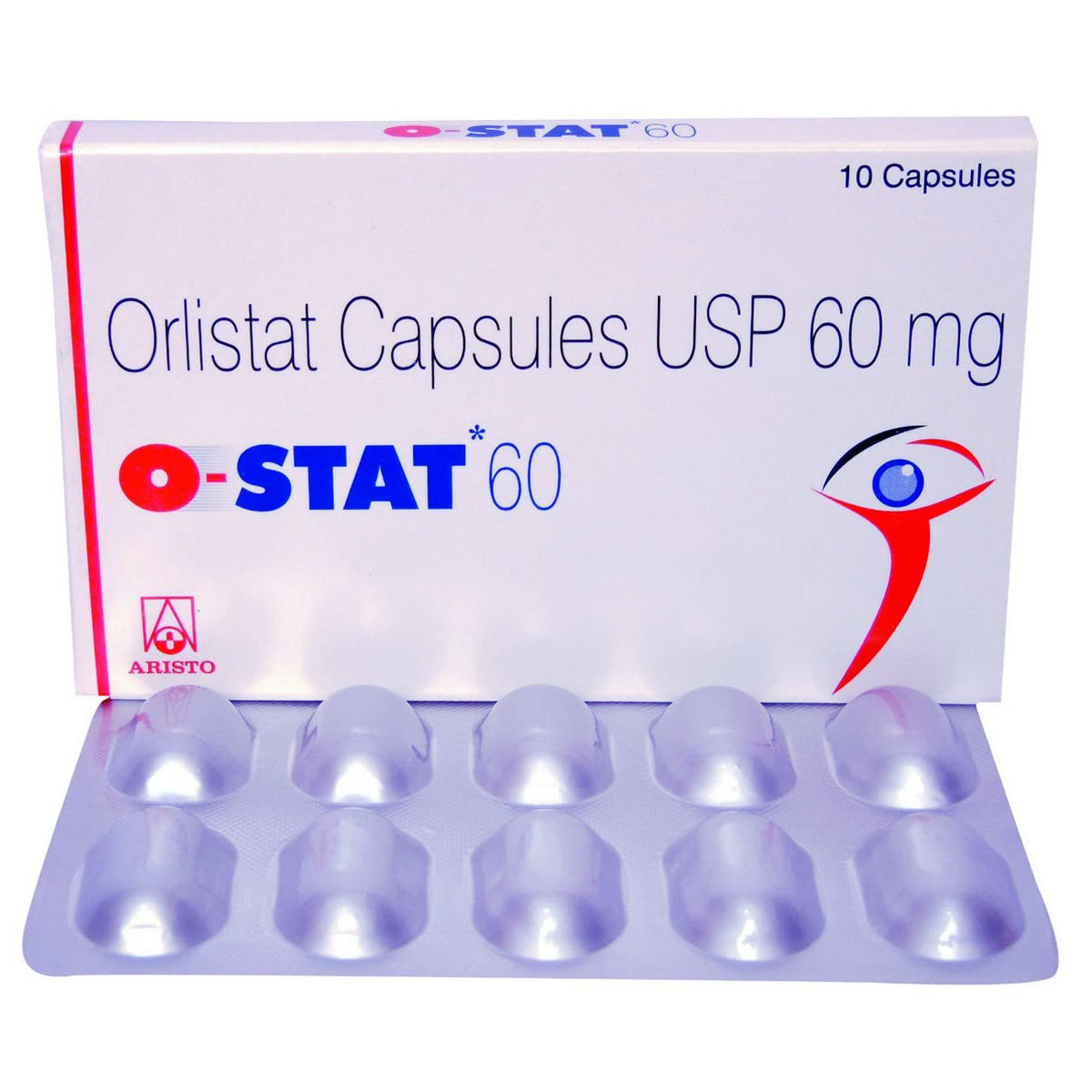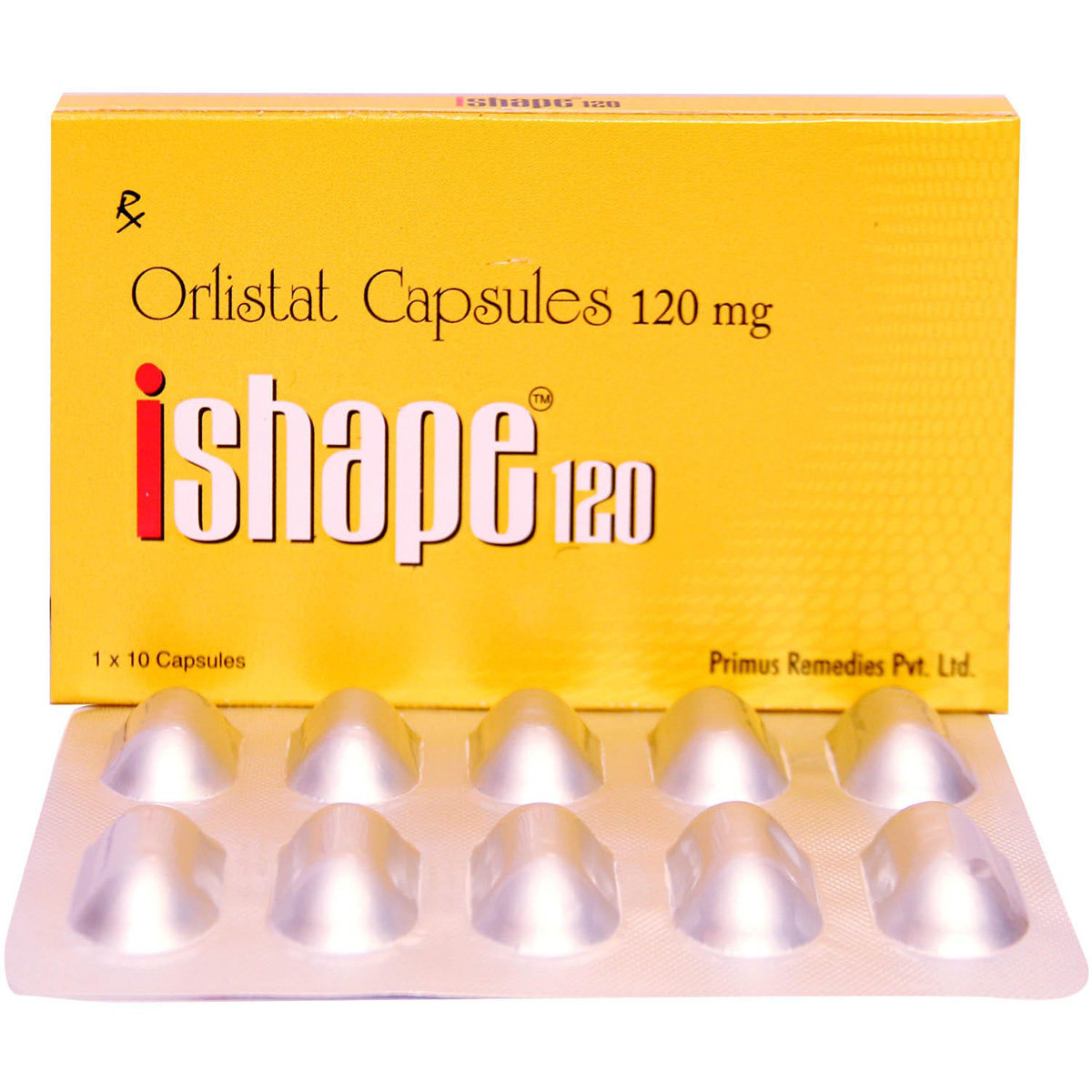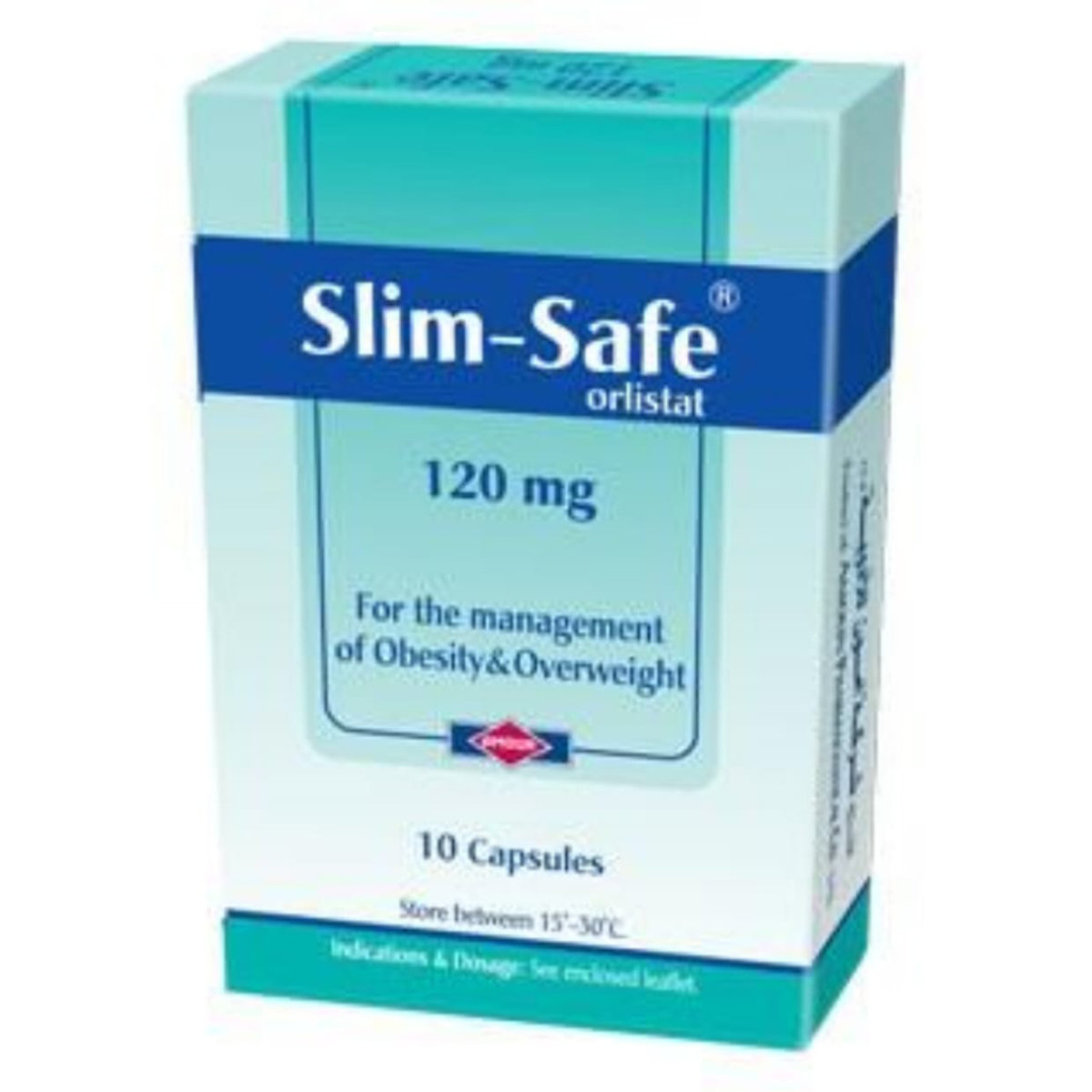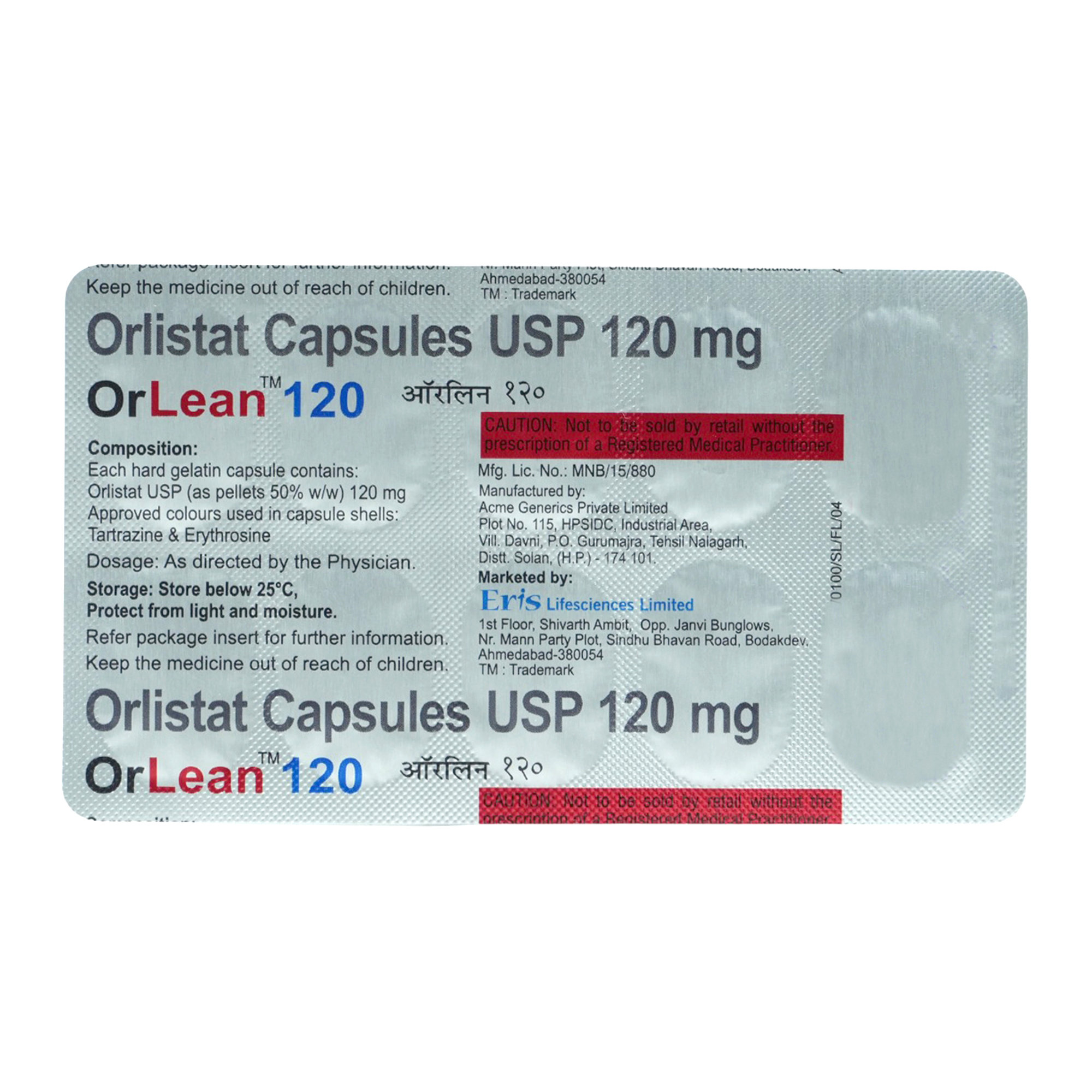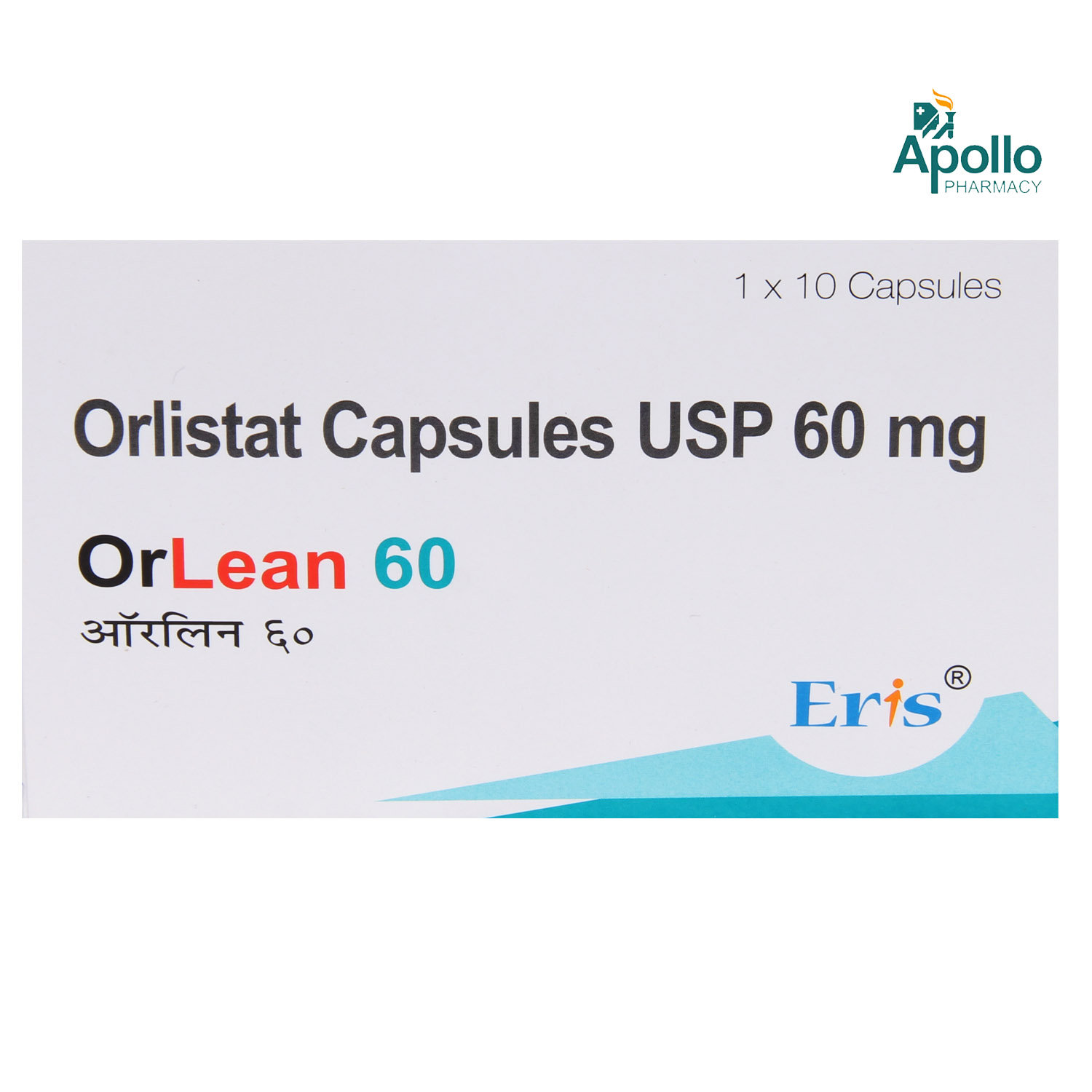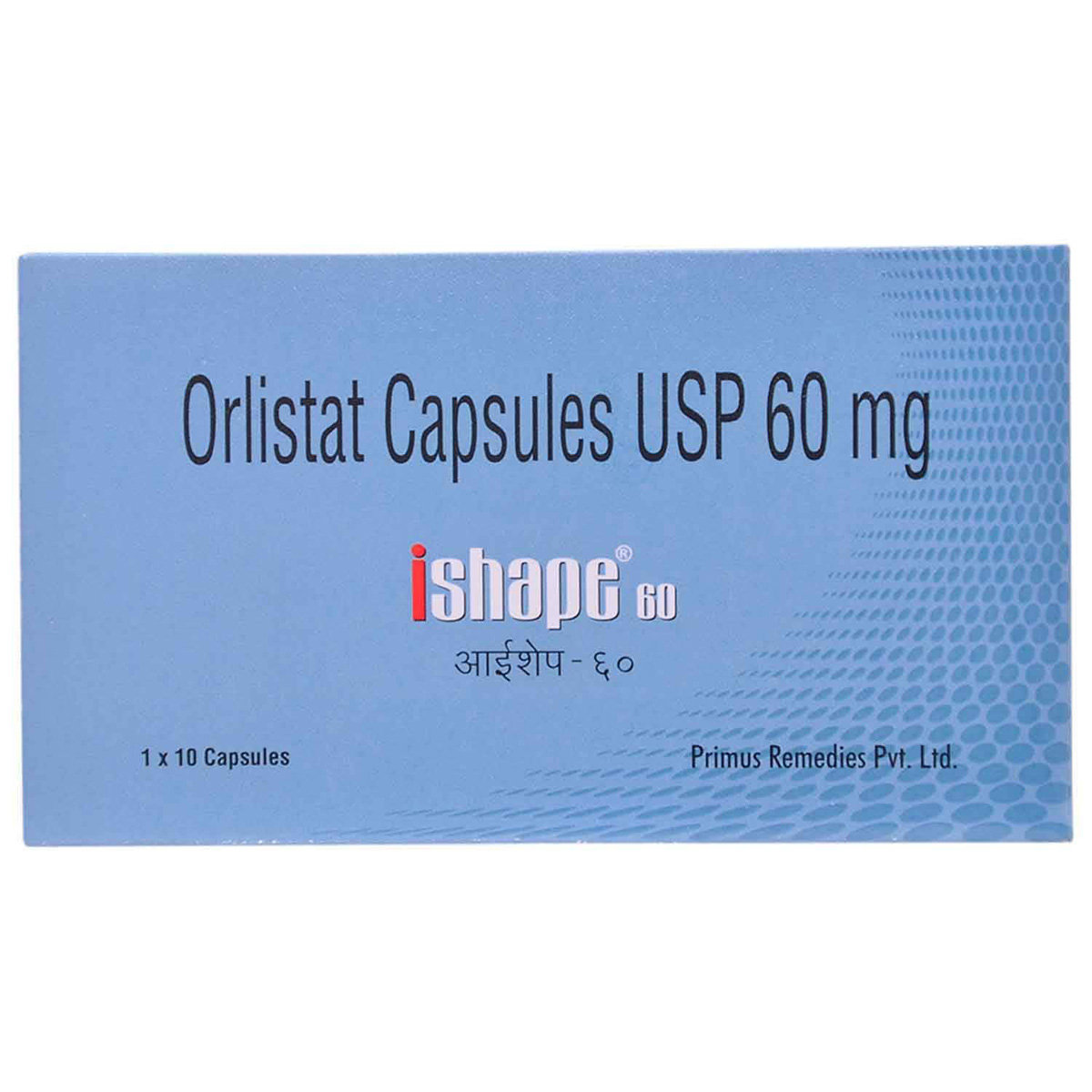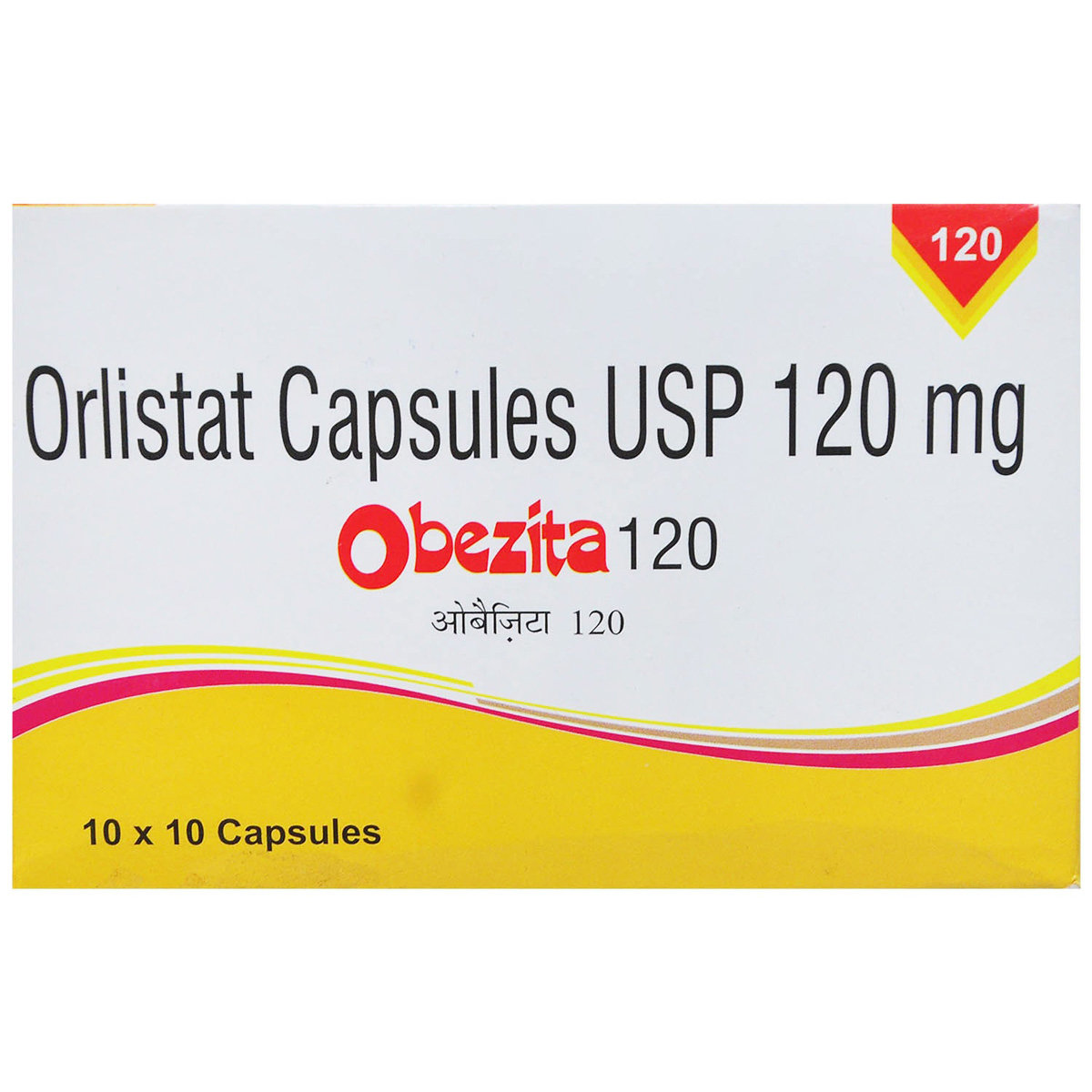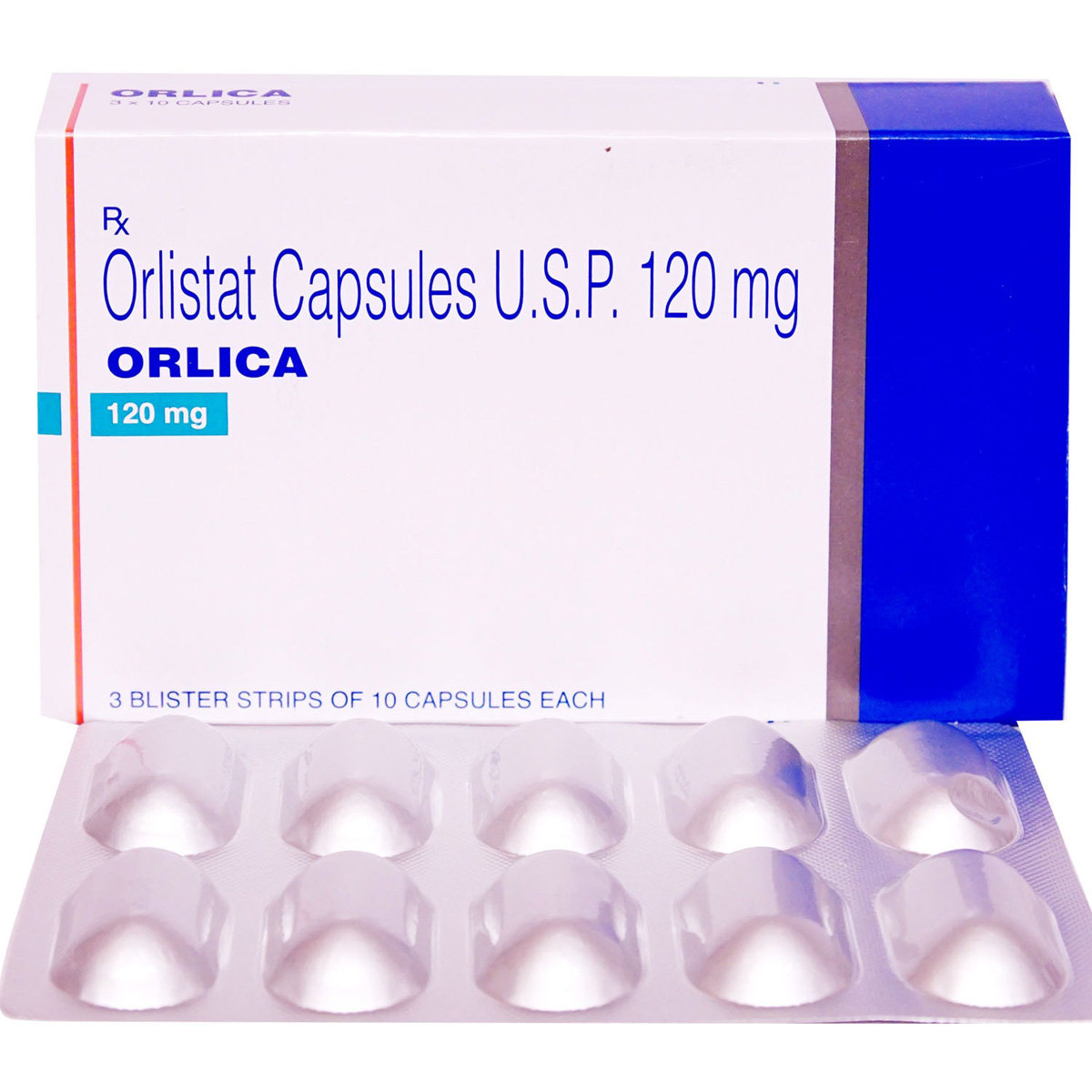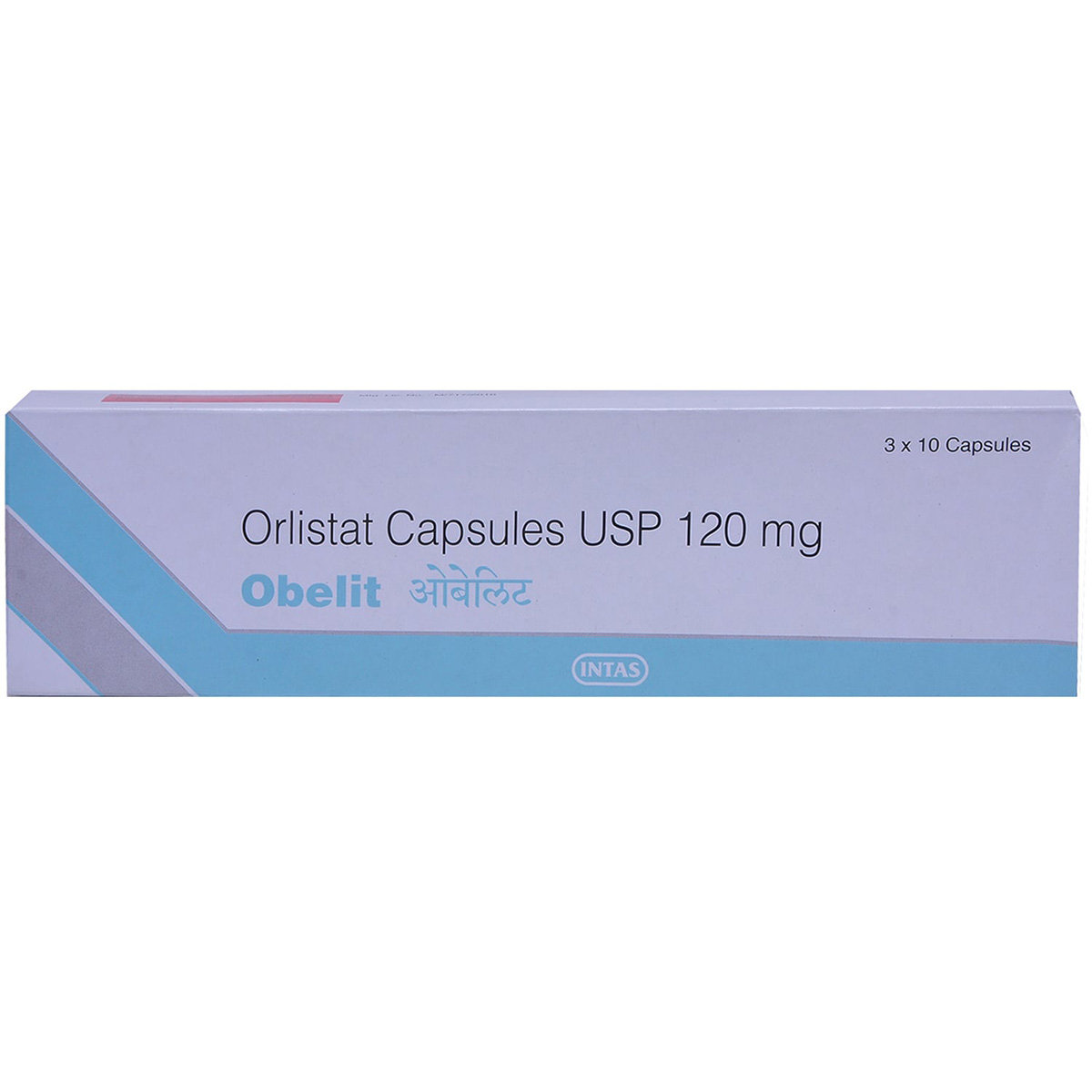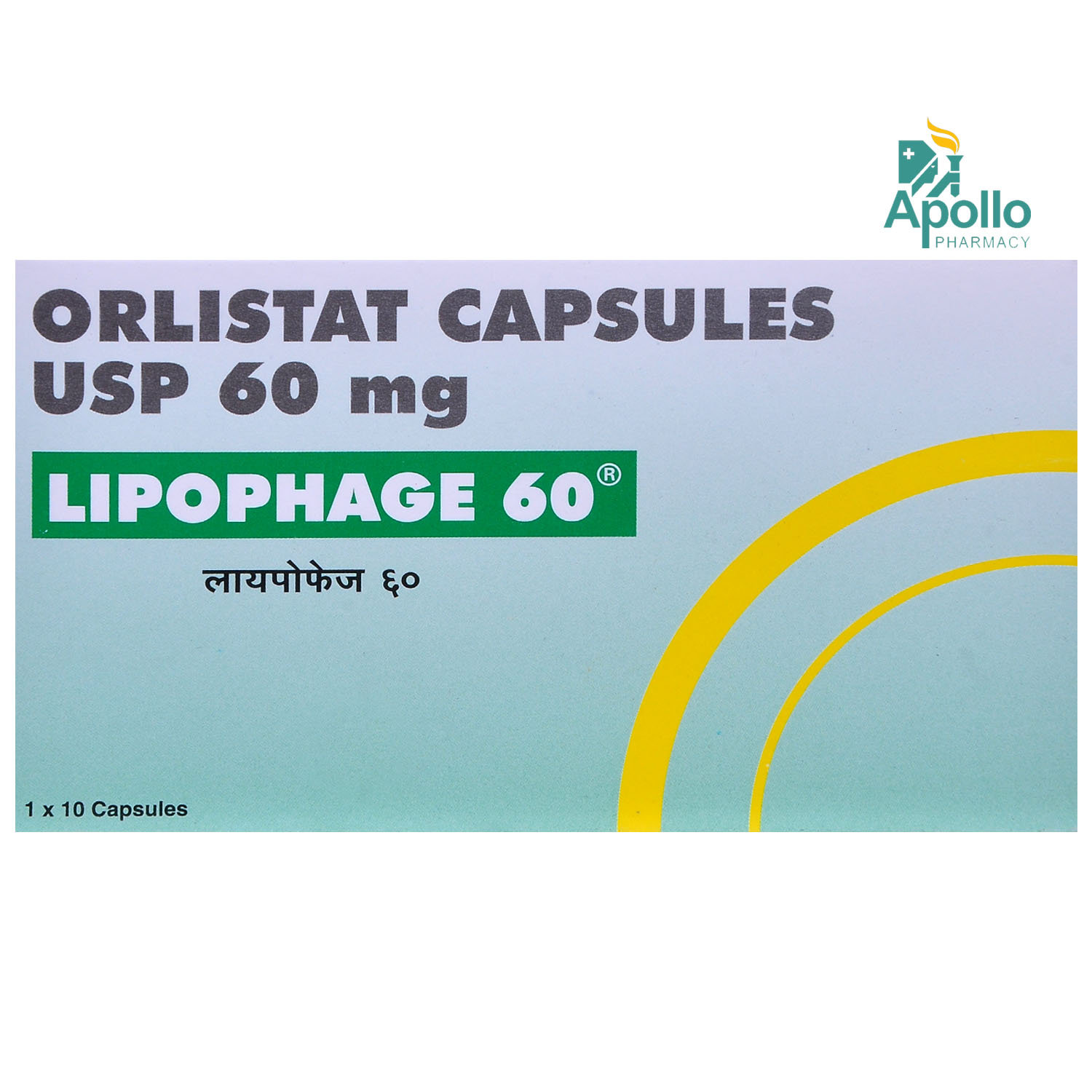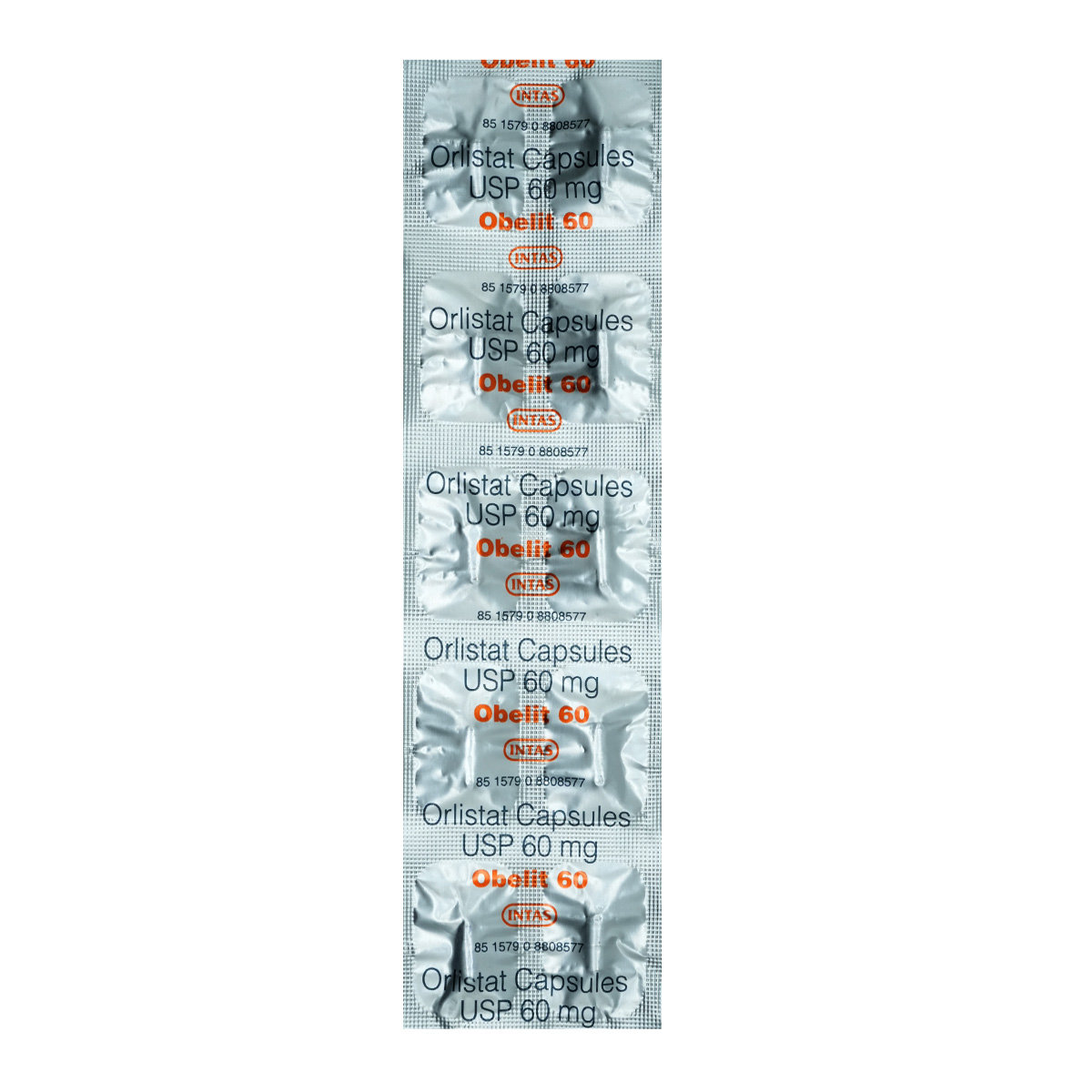Orlistat
About Orlistat
Orlistat is used to treat obesity and help in weight loss. Orlistat is to be used along with a low-calorie diet and regular physical exercise. Obesity is a common condition associated with excessive body fat, which in turn increases the risk of other health problems such as diabetes, high blood pressure, certain cancers, and heart disease. Intake of more calories than you burn by exercise or daily activities results in obesity.
Orlistat contains Orlistat, which works in the small intestine and stomach and prevents the action of enzymes that break down fat, which is absorbed by the body. Orlistat decreases the absorption of fat from the food you eat. Thus, fat passes through the gut and is excreted in the faeces, which makes the body unable to use fat as a source of energy or convert it into fat tissue. Thereby, Orlistat helps in weight loss.
Take Orlistat as prescribed by your doctor. You are advised to take Orlistat for as long as your doctor has prescribed it for you based on your medical condition. Some people may experience soft stools, sudden bowel motions, flatulence (gas) with or without oily spotting, oily or fatty stools, stomach pain, stool incontinence (involuntary leakage of stools), and runny or liquid stools. Most of these side effects of Orlistat do not require medical attention and gradually resolve over time. However, if the side effects persist, please consult your doctor.
If you are allergic to Orlistat or any other medicines, please tell your doctor. Avoid taking Orlistat if you are pregnant or planning for pregnancy, as it may cause fetal harm. It is not known whether Orlistat is excreted in human milk. Therefore, please consult a doctor if you are a breastfeeding woman. Orlistat is not recommended for children below 18 years of age, as the safety and effectiveness have not been established. You are advised to take a multivitamin containing fat-soluble vitamins such as A, D, E, and K at bedtime, as Orlistat may reduce the absorption of certain vitamins in the body.
Uses of Orlistat
Medicinal Benefits
- Orlistat contains Orlistat, an anti-obesity medicine used to aid weight management in overweight and obese patients.
- Blocks fat absorption: Acts in the stomach and small intestine to inhibit enzymes (lipases) responsible for breaking down dietary fat.
- Reduces calorie intake from fat: Prevents the absorption of about 25–30% of the fat consumed in meals, allowing it to pass through the gut and be excreted.
- Promotes safe weight loss: Helps achieve gradual weight reduction when combined with a calorie-controlled diet and regular physical activity.
- Lowers obesity-related health risks: Reduces the risk of developing type 2 diabetes, high blood pressure, heart disease, and other weight-related conditions.
- Supports long-term weight management: Helps maintain weight loss over time when used alongside lifestyle modifications under medical supervision.
Directions for Use
- Orlistat can be taken during, or up to 1 hour after meals, as advised by your doctor.
- Take Orlistat daily at the same time for effective results or as your doctor advises.
- Swallow Orlistat as a whole with a glass of water.
- Do not crush, chew, or break it.
Storage
Side Effects of Orlistat
- Nausea
- Vomiting
- Headache
- Loss of appetite
- Soft stools
- Sudden bowel motions
- Flatulence (gas) with or without oily spotting
- Oily or fatty stools
- Stomach pain
- Stool incontinence (involuntary leakage of stools)
- Runny or liquid stools
- Dark urine
Medicines Containing this Salt
View AllDrug Warnings
- Inform your doctor if you are allergic to Orlistat or any other medicines.
- Consult your doctor before taking Orlistat if you have cholestasis (blocked bile flow from the liver), chronic malabsorption syndrome, anorexia, bulimia, thyroid disorder, diabetes, kidney problems, or liver problems.
- Avoid taking Orlistat if you are pregnant or planning to become pregnant, as it may cause harm to the unborn baby.
- If you are breastfeeding, consult your doctor before using Orlistat, as it is not known whether the medicine passes into breast milk.
- Orlistat is not recommended for children under 18 years of age due to a lack of established safety and effectiveness.
- Combine Orlistat with regular exercise and a low-fat, low-calorie diet for best results in weight management.
- If you experience severe diarrhoea while taking Orlistat, it may reduce the effectiveness of oral contraceptive pills. Use an additional contraceptive method to prevent pregnancy in such cases.
- Take a daily multivitamin supplement containing fat-soluble vitamins (A, D, E, and K) at bedtime, at least 2 hours after Orlistat, since the medicine may reduce the absorption of these vitamins.
Drug Interactions
Drug-Drug Interaction: Orlistat may interact with immunosuppressant (ciclosporin), blood thinner (warfarin), antidiabetic drug (acarbose), thyroid medicine (levothyroxine), medicine for heart rhythm problems (amiodarone), anticonvulsants (lamotrigine), HIV/AIDS drug (atazanavir).
Drug-Food Interaction: Avoid high-fat meals that include butter, meat, dark chocolate, olive oil, nuts, and seeds (brazil nuts) with Orlistat as it may increase the risk of adverse effects on the stomach or intestines.
Drug-Disease Interaction: If you have cholestasis (bile flow from the liver is blocked), chronic malabsorption syndrome, anorexia or bulimia (eating disorder), thyroid disorder, diabetes, or kidney or liver problems, please consult a doctor before taking Orlistat.
Drug-Drug Interactions Checker List:
Safety Advice

Alcohol
cautionAlcohol should be limited or avoided while taking Orlistat to support weight loss goals and overall health.

Pregnancy
unsafeOrlistat is a Category X pregnancy drug and is considered unsafe for pregnant women as it may cause harm to the unborn baby. So, if you are pregnant or planning for pregnancy, please inform your doctor before taking Orlistat.

Breast Feeding
cautionIt is unknown whether Orlistat is excreted in human milk. Therefore, it is given to breastfeeding mothers only if the doctor thinks the benefits outweigh the risks.

Driving
safe if prescribedOrlistat usually does not affect your ability to drive or operate machinery.

Liver
cautionTake Orlistat with caution, especially if you have a history of Liver diseases/conditions. The dose may be adjusted by your doctor as required.

Kidney
cautionTake Orlistat with caution, especially if you have a history of Kidney diseases/conditions. Orlistat may cause kidney stones in patients suffering from chronic kidney disease. Please consult a doctor if you have kidney problems so that the dose may be adjusted by your doctor as required.

Children
unsafeOrlistat is not recommended for children below 18 years of age, as the safety and effectiveness have not been established.
Habit Forming
Diet & Lifestyle Advise
- Follow a low-fat, balanced diet where no more than 30% of calories come from fat to minimise side effects like oily stools. Choose lean meats, fish, low-fat dairy, whole grains, vegetables, and fruits.
- Distribute fat intake evenly throughout the day to avoid digestive discomfort caused by excessive fat intake in a single meal.
- Avoid high-fat, fried, or greasy foods, as these can increase gastrointestinal side effects while taking Orlistat.
- Take a multivitamin supplement at bedtime, at least two hours apart from Orlistat, since the medicine may reduce the absorption of vitamins A, D, E, and K.
- Stay hydrated by drinking sufficient water throughout the day to support digestion and prevent constipation.
- Engage in regular physical activity, aiming for at least 150 minutes of moderate exercise per week to aid weight loss and improve overall health.
- Limit or avoid alcohol intake as it adds extra calories and may slow down your weight-loss progress.
- Monitor your weight and overall health regularly and follow up with your doctor to track treatment effectiveness.
- Eat small, frequent meals to help control hunger and maintain stable energy levels.
- Take Orlistat as advised by the doctor, and do not skip, double, or change your dose without medical advice.
Patients Concern
Disease/Condition Glossary
Obesity: Obesity is a common condition associated with excessive body fat, which in turn increases the risk of other health problems such as diabetes, high blood pressure, certain cancers and heart disease. Intake of more calories than you burn by exercise or daily activities results in obesity. Some common causes of obesity include insufficient sleep, growing older, pregnancy, genetics, hypothyroidism (underactive thyroid gland) or polycystic ovary syndrome (imbalance of female reproductive hormones). Proper diet and exercise are advised, along with medication to treat obesity.
FAQs
Orlistat is used to treat obesity and help in weight loss. It is to be used along with a low-calorie diet and regular physical exercise.
Orlistat contains Orlistat, which works in the small intestine and stomach and inhibits the action of enzymes that break down fat, which is absorbed by the body. Orlistat decreases the absorption of fat from the food you eat. Thus, fat passes through the gut and is excreted in the faeces, which makes the body unable to use fat as a source of energy or convert it into fat tissue. Thereby, Orlistat helps in weight loss.
You are not recommended to take Orlistat with ciclosporin (used for organ transplant rejections, severe rheumatoid arthritis) as it may reduce the effectiveness of ciclosporin. However, if you are supposed to take both medicines, you are advised to take ciclosporin after 3 hours of taking Orlistat. However, please consult a doctor before taking Orlistat with any other medicines.
Orlistat may cause kidney stones in patients suffering from chronic kidney disease. Therefore, if you have any kidney problems, please inform your doctor before taking Orlistat.
Orlistat should be used with caution in diabetic patients as it may increase the risk of low blood sugar levels. Therefore, inform your doctor if you have diabetes before taking Orlistat so that the dose of antidiabetic medicine may be adjusted accordingly.
You are recommended to avoid high-fat meals that include butter, meat, dark chocolate, olive oil, nuts and seeds (brazil nuts) with Orlistat as it may increase the risk of adverse effects on the stomach or intestines.
You are recommended to use Orlistat for as long as your doctor has prescribed it. However, avoid taking Orlistat for more than 6 months. If you do not notice weight loss after taking Orlistat for 12 weeks, please consult a doctor.
You are recommended to take a multivitamin containing fat-soluble vitamins such as A, D, E and K at bedtime or at least 2 hours after taking Orlistat. Generally, Orlistat may reduce the absorption of certain vitamins in the body. Therefore, your doctor may advise you to take multivitamins.
Do not take Orlistat if you are allergic to any of its components or if you have cholestasis (bile flow from the liver is blocked) or chronic malabsorption syndrome.
Follow a low-calorie diet and regular physical exercise. Include fruits, vegetables and whole grains in your diet.
Interaction of Orlistat with alcohol is unknown. Please consult a doctor before consuming alcohol while using Orlistat.
Orlistat starts working within 2 weeks and you may notice results in 1-3 months.
Yes, it is important to do regular exercise and maintain a low-fat and low-calorie diet along with Orlistat for effective results.
Orlistat should be swallowed as a whole with water; do not crush or chew it. Take it during a meal or up to 1 hour after a meal.
Orlistat may cause side effects like soft stools, sudden bowel motions, flatulence (gas) with or without oily spotting, oily or fatty stools, stomach pain, stool incontinence (involuntary leakage of stools), and runny or liquid stools. If the side effects persist, please consult your doctor.

